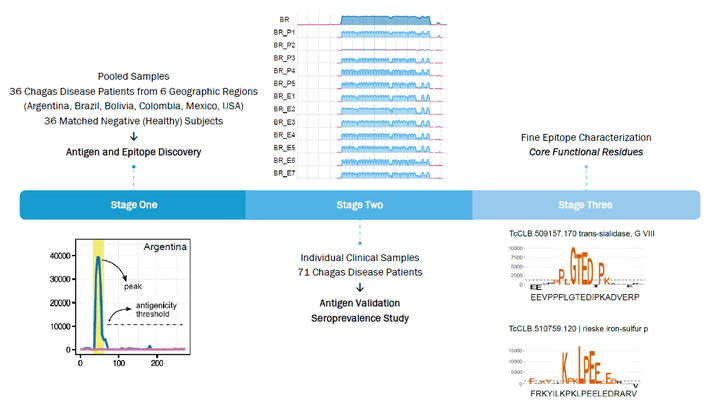Development of a Chagas Disease Antigen and Epitope Atlas using massively parallel serological assays
 Stages in the construction of the Atlas
Stages in the construction of the Atlas
Abstract
During an infection, the immune system produces antibodies against pathogens. With time, the immune repertoires of infected individuals become specific to the history of infections and thus represent a rich source of diagnostic markers. Until now, a complete description of antibody specificities in different individuals has been hindered by the lack of powerful tools. Here, using high-density peptide arrays we examined the antibody repertoires developed by Chagas Disease patients. We synthesized and assayed twenty-four high-density peptide arrays each displaying 2.8 million unique peptides from 30,500 proteins encoded in the genomes of two isolates of Trypanosoma cruzi. These arrays were assayed with pooled serum samples from infected subjects from Argentina, Bolivia, Brazil, Colombia, Mexico and the US, and matched negative samples. As a result we obtained 21,062 reactive peptides from 7,707 proteins, corresponding to 3,868 non-redundant antigenic regions. These regions were used to design new high-density arrays for validation, epitope mapping and estimation of seroprevalence of antigens. This design also includes single-residue mutational scans of selected epitopes to define the core residues of each epitope. These arrays, displaying 393,000 peptides, were assayed with a collection of 71 serum samples from the same geographic regions. In this presentation we will showcase the first proteome-wide search for Chagas Disease antigens and the fine mapping of the identified linear epitopes at the individual level and across different human populations. These datasets enable the study of the Chagas antibody repertoire at an unprecedented depth and granularity, while also providing a rich dataset of serological biomarkers.